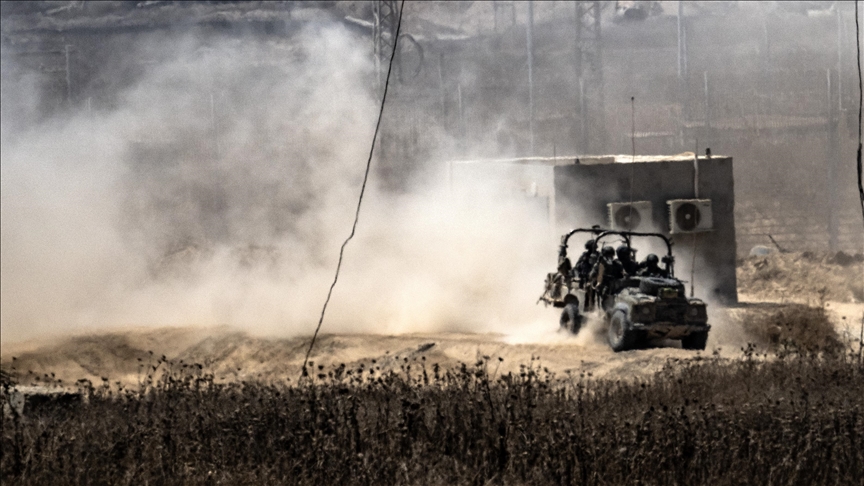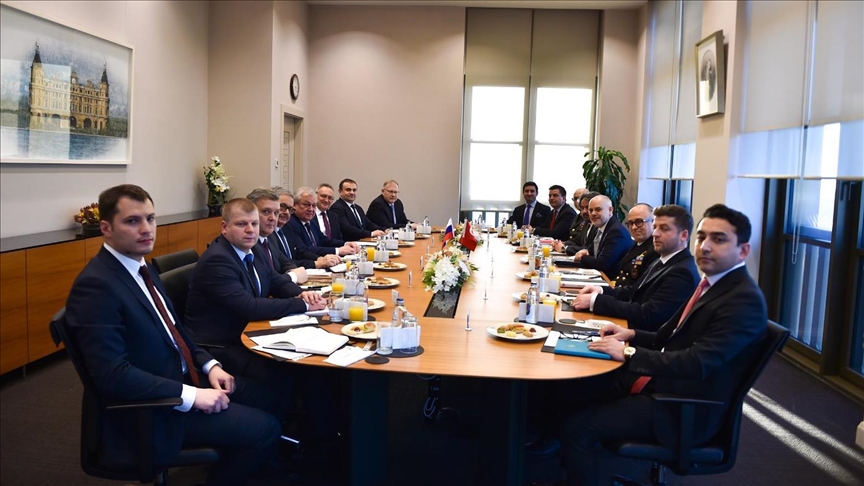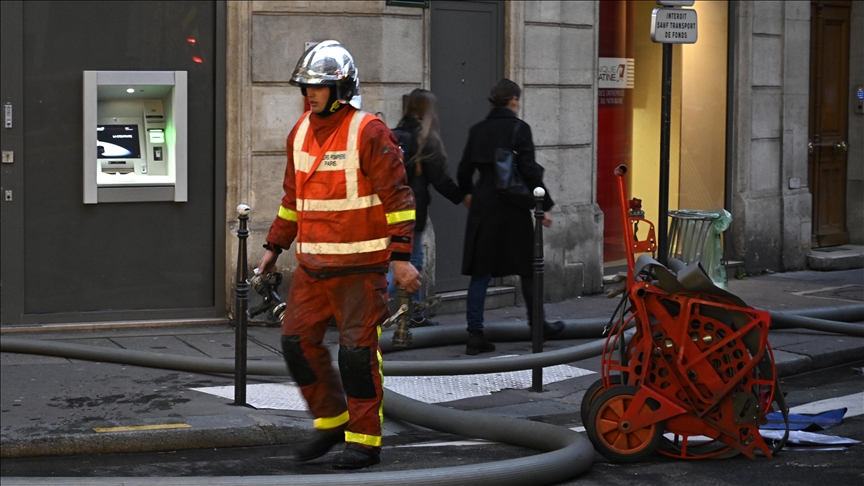South Africa’s exclusively white Afrikaner settlement
- Self-governed community of 3,000 operates without government funding, using its own currency and managing all services locally
- Orania represents ‘revolution’ against exploitation of cheap Black labor, where Afrikaners do ‘all our work ourselves,’ says town’s spokesperson
ORANIA / ISTANBUL
Anadolu on Wednesday gained access to Orania, a de facto state-like settlement in South Africa where only white Afrikaners are permitted to reside.
Orania, located in South Africa’s Northern Cape province, draws on the country’s history of racial segregation while also presenting itself as a legal cultural self-governance model that does not exploit Black labor.
The visit comes as US President Donald Trump hosted his South African counterpart, Cyril Ramaphosa, at the White House on Wednesday.
The white minority, which Trump claims is facing “persecution and genocide” from the South African government, accounts for approximately 4.5 million of the country’s 63 million population.
The white South African community—of which Elon Musk is also a member—descends from Europeans who settled in the Cape Colony centuries ago under Dutch and British rule.
The majority of whites speak Afrikaans, a language rooted in Dutch, and many identify as Afrikaners, descended from the Dutch Boer farmers who called the land home for over 350 years.
Although the white minority held total dominance under apartheid until the democratic transition in 1994, they continue to be South Africa’s wealthiest demographic. Around 40,000 white farming families, whom Trump sought to protect by imposing sanctions on South Africa, still control 60% of the country’s agricultural land, although there are also impoverished white families.
All labor done by whites
With 3,000 white, Afrikaans-speaking residents, Orania remains a cultural stronghold for Afrikaners. Non-Africans are not allowed to live or work in Orania, and even the government restricts access, drawing strong parallels with apartheid.
However, residents argue that Orania’s existence is constitutionally protected and serves to preserve their culture.
Joost Strydon, the town’s spokesperson, told Anadolu: “As is stated very clearly in the South African Constitution, Article 235 very clearly stipulates that cultures in South Africa has got the right to preserve their culture and build out cultural self determination, but someone has to uphold that right, and that’s what we’ve done here. We’ve started the process of upholding our rights.”
Strydon argued that Orania represents a “revolution” against the exploitation of cheap Black labor, adding: “The availability of cheap black labor is in South Africa, something that pioneers have been criticized for for a long time and choice to do all our work ourselves, whether that be construction, whether that be working on cars, building houses, cleaning gardens, cleaning toilets, everything that’s done in Urania is done by Afrikaners.”
Local government handles public services
On Orania’s relationship with the South African government, Strydon explained that the town operates without receiving a single cent from government at the municipal or local level.
“Everything we’ve built here, we’ve funded ourselves, and that’s very tough, because our income tax still goes to the state,” he added.
In Orania, he said local authorities manage all infrastructure and public services, including a well-organized security system with trained staff registered with national authorities, and a medical center staffed by qualified professionals.
Strydon said half of Orania’s electricity needs are met through solar panels and that the town is prepared to accommodate 10,000 to 12,000 residents in the medium term. “Even if we are just 3,000 people now, we have planned, in advance,” he noted.
Their long-term aim is to attract as many Afrikaners to Orania as possible. “If all the Afrikaners come here, that would be part of the dream. So to create a space where Afrikaners truly have a place to call their own and can make decisions for themselves,” he said.
Local currency: Ora
Strydon noted that Orania’s economy has grown at a steady 10–15% annually over the past five years. Key sectors include pecan nut farming and construction materials production.
He highlighted that, since 2004, Orania has used its own local currency, the “ora,” which is backed by a local bank.
This currency keeps money circulating in Orania, reduces security risks because it cannot be used outside the community, and allows the local bank to earn higher interest by holding South African rands while facilitating internal trade.
Orania flag
Strydon said the Orania flag incorporates orange, white, and blue, echoing the colors of South Africa’s former national flag.
According to him, orange signifies the Afrikaner struggle for freedom, white reflects their heritage, faith, and ideals of peace and purity, while blue stands for the collective effort invested in building Orania.
He said the figure at the center of the flag, known as the “Little Giant,” serves as a symbol of self-reliance and determination. “You’ll have to roll up your sleeves and do the work yourself. And that is symbolically to say, create your own future yourself.”
Oranians thankful to Trump
Strydon commented on Trump’s policies toward South Africa, claiming that the country’s 142 race-based laws favor Black economic empowerment over whites and Afrikaners.
He described Trump’s policies as a “positive” step, recognizing concerns over land expropriation without compensation and welcoming the US government’s prompt response and support.
On the possibility of the US granting refugee status to Afrikaners, Strydon responded, “Afrikaners are at home in Africa. We don’t belong anywhere else… we’ve been living here for almost 400 years. We are part of the soil… we have no intentions of leaving.”
He added that if the US or any other government offers support in response to land seizures, racial laws, and farm attacks, their message is simple: “Help us here.”
He emphasized that they seek “recognition” rather than financial aid, noting that simply being recognized as Afrikaners is “a big step.”
He said they would like the South African government to respond to Trump’s actions with a statement such as, “Afrikaners, please stay—you are part of this country.”
“They’ve started fights and started a lot of drama, and I think that is the long story short, recognize us, but also recognize the territory for us,” Strydon concluded.
Anadolu Agency website contains only a portion of the news stories offered to subscribers in the AA News Broadcasting System (HAS), and in summarized form. Please contact us for subscription options.




